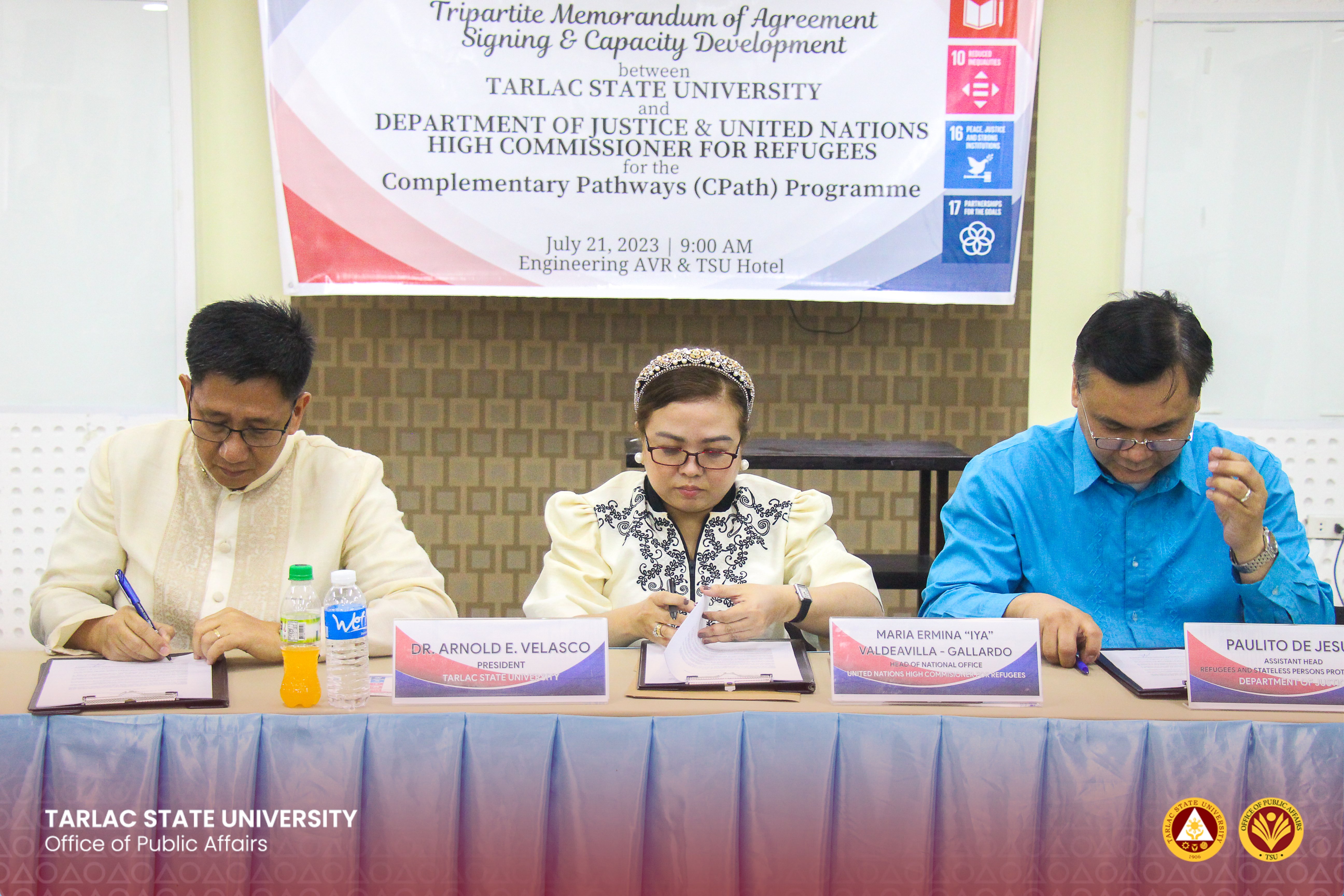Tarlac State University inked a partnership with the United Nations High Commissioner for Refugees (UNHCR) and the Department of Justice (DOJ) through a tripartite memorandum of agreement for the Complementary Pathways (CPath) program on Friday morning (July 21) at the Engineering AVR.
TSU is the first state university to be part of the CPath program aimed at providing a home for refugees. The CPath program is a safe way for refugees to be welcomed for a lawful stay in a third country and meet their international protection needs.
The MOA signing and capacity building among the three institutions/agencies will give opportunities to better the refugees' lives, such as studying as scholars, proper health care, and other essential services to live a "normal life" in an inclusive space within the university.
According to State Counsel Atty. Paulito "Lito" de Jesus, Assistant Head of DOJ Refugees and Stateless Persons Protection Unit, the UNHCR approached them to explore having capacity-building activities through CPath.
Meanwhile, UNHCR Head of Philippines Office Atty. Maria Ermina "Iya" Valdeavilla-Gallardo said the program draws inspiration from the bible, particularly Leviticus 19:34.
"The scripture is saying that we should be opening our doors to the people who are not like us – the refugees; refugees who do not have any choice but to leave the country of residence because of persecution. They did not have a choice, and the gesture being offered by the TSU of opening your doors to the refugees [is a] testament that you are complying with the scripture," Atty. Valdeavilla-Gallardo said in her speech.
She also mentioned the 2030 Sustainable Development Goals tagline, "No one should be left behind," as it is instrumental in the CPath program.
Atty. Valdeavilla-Gallardo added that the commitment does not end in the ceremonial signing, stating that everyone has a role in welcoming the refugees.
In 2021, TSU, through the School of Law and Office of International Affairs and Linkages, affirmed its support of the program through a series of discussions, leading to a memorandum of understanding.
CPath scholars are expected to arrive at TSU this year to study engineering or IT-related programs.
"After three to four years, maybe we can build a 'hope away from home' for the students [refugees]," said Iris Joy Suministrado-Tayag, UNHCR Protection Associate, during the CPath training in the afternoon. (jlmm-OPA)








